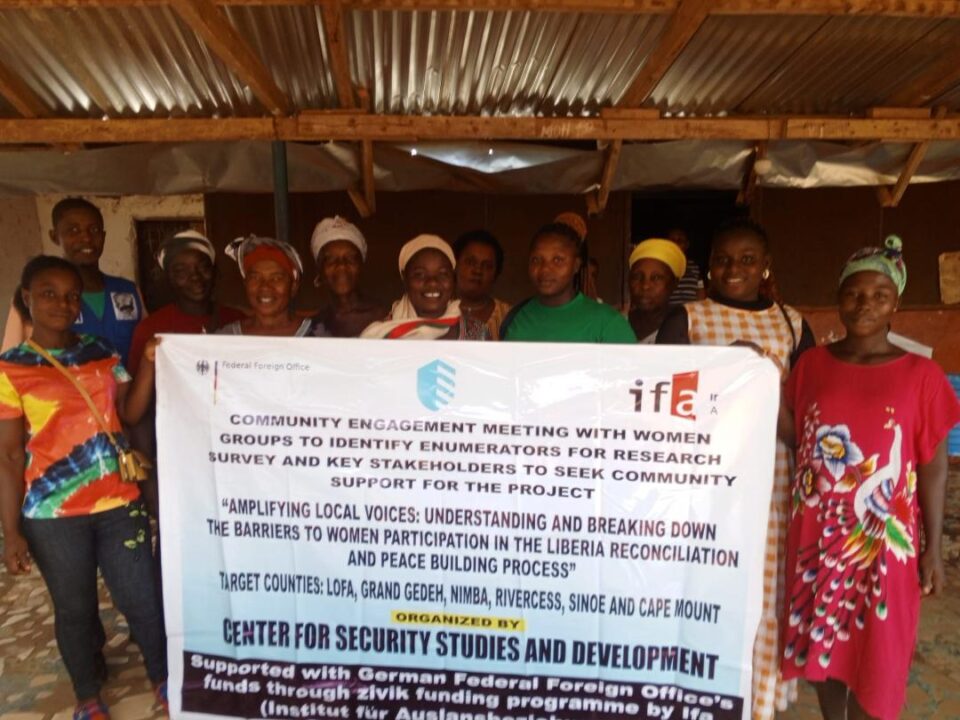Targets Counties “Assessed As Most Vulnerable To Violence And Exhibit Low Levels Of Reconciliation”
The Center for Security Studies and Development (CENSSAD) has begun implementing a 9-month project titled: “Amplifying Women Voices: Breaking Down Obstacles to Women’s Participation in Liberia Peace building and Reconciliation Processes” in Rivercess County.
The project, which encompasses a number of activities, including a baseline survey, training workshops, town hall meetings and radio round table programs, seeks to strengthen women’s representation in Liberia’s reconciliation and peace building processes.
As part of the community engagements, which took place in Cestos and Yarkpa Town in Rivercess from 9-10 April 2024, the Program Team of CENSSAD, including the Research Consultant, met with a number of women groups and local stakeholders in the county to explain the objectives of the project and to seek support to ensure the successful implementation of the project.
As part of the engagements, the Project Consultant, following consultations with the women groups, identified 4 local enumerators to undertake the baseline study and further conducted a brief training session the local enumerators. The training covered topic relating to introduction and overview of the study and review of survey protocol. Liberia still lacks profound knowledge about the systematic obstacles that prevent women from actively contributing to reconciliation and peace building initiatives. The first output hence relates to women being given the opportunity to express barriers to their participation in Liberia’s reconciliation process. A systematic analysis of an in-depth one-on-one interviews with women in six target counties will allow CENSSAD to compile a list of the most pressing obstacles to women’s participation in the reconciliation process.
The project targets Rivercess, Cape Mount, Lofa, Nimba, Grand Gedeh and Sinoe Counties. These counties are assessed as most vulnerable to violence and exhibit low levels of reconciliation.
The project is supported by the German Federal Office’s Funds through the Zivik Funding Programme by ifa (Institut für Auslandsbeziehungen). The Zivik Funding Programme supports civil society actors worldwide in preventing crises, transforming conflicts, and creating as well as stabilizing peaceful social and political systems.
The project contributes to the establishment of an inclusive reconciliation process that aligns with both the 2003 Comprehensive Peace Agreement (CPA) and the 2017 Liberia Peacebuilding Plan (LPP). Various segments of the population have remained by and large excluded from the reconciliation process, with women being the largest one. The low level of activity of women in Liberia’s reconciliation process is surprising, given their reputation of being strongly committed to prevent intra-state conflict from ever reigniting again. It is hence of utmost importance to understand why Liberian women fail to drive forward the reconciliation process and what can be done to render the latter more inclusive. Understanding and addressing the barriers that prevent them from actively contributing to the country’s reconciliation process will allow women to sustain the peace they once achieved themselves.

